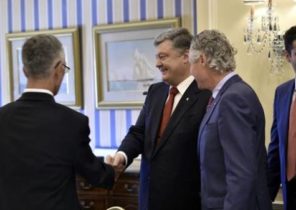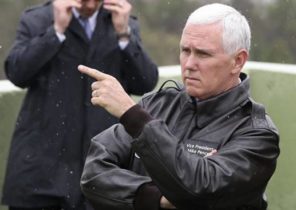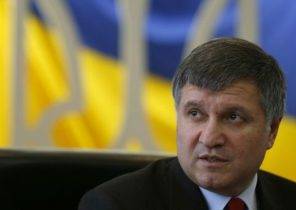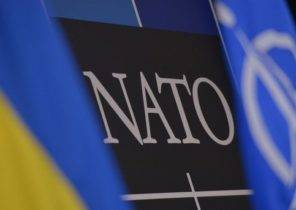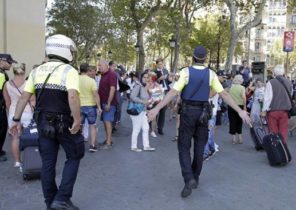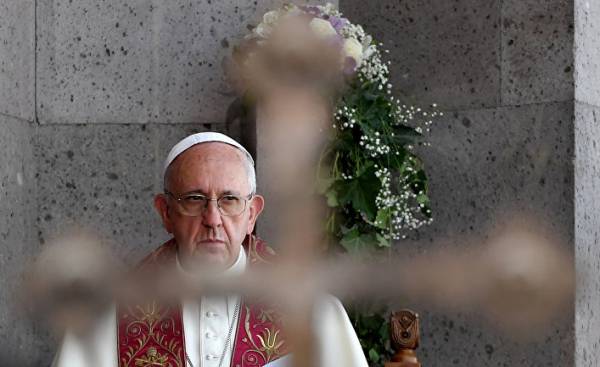
Popes and presidents have always treated each other with caution. But between President Donald trump and Pope Francis ‘ relationship is very tense. They have many differences on key issues, and both tend to neglect the expectations of its diplomats. So on Wednesday a meeting between the President and the Pope was the most strange and incongruous in modern history.
Pope Francis is a Jesuit from Argentina who grew up in a family of immigrants and I believe that entertainment distracts from family and from communication between people. Trump — the thrice-married tycoon in real estate and most of these entertainment, known for their impudence, and sometimes vulgarity. Francis is lauded for such acts as washing of the feet of prisoners, and the trump humiliates captured the war heroes and regularly calls his opponents “losers.” Francis, the spiritual head of the largest Christian denominations in the world. Trump departed from the Presbyterian Church, confusing lines from the Scriptures and is rarely seen in the temple.
Well, these people can find a common language? They are not just the complete opposite of each other as individuals; they have very different positions on all issues, from climate change to immigration and caring for the poor.
During an impromptu meeting with the press last year, Francis spoke about the plans of the candidate trump to build a wall on the southern border of America. “People think only about the construction of walls, wherever they were, and not about building bridges, is not a Christian,” the Pope said. A few months before that, he gave a speech on the White house lawn and thought about the immigrant history of America. Trump shocked many with his angry response. He said that it is outrageous when a religious leader doubts his faith, and the Pope called “a very political person.” After this first skirmish Pope Francis continues to speak before Catholic sermons with political overtones about the need to demolish the wall.
Referring the problem of refugees, Pope Francis has consistently urged religious and political leaders to welcome them in their homes (literally and figuratively), and even adopted a family at the Vatican. Trump, in contrast, tries to impose restrictions on the entry of refugees from certain Muslim countries and says he wants to take only the best. As for climate change, Pope Francis pays great attention to environmental issues. Among other things, he in 2015 published the landmark Encyclical on the matter to 192 pages. Trump during the election campaign claimed that global warming is an invention of the Chinese government, and what he thought about the US withdrawal from the Paris climate agreement. Francis and trump today agree on the importance of the family and of the moral depravity of abortion, but trump has not yet fulfilled his campaign promise to revoke the funding for the program for regulation of fertility, and many doubt the sincerity of his commitments.
Trump is not the first President, in conflict with the Pope. These relationships have changed over the years, experiencing periods of warming and frost on the background of the wars, political crises and changing social norms and practices. The United States maintain consular relations with the Vatican since the days of George Washington. But in the 19th century influx of Catholic immigrants in the United States, as well as the involvement of several Catholic conspiracy to assassinate Abraham Lincoln caused an increase in anti-Catholic sentiment. In 1867, Congress stopped funding U.S. diplomatic mission in Vatican city, and until 1933, when Franklin Roosevelt sent his personal envoy, and between the two States have not had formal diplomatic contacts. Although relations with the Vatican slowly improved, American Protestants in the early 20th century, with a large suspicious to Catholicism. The Presbyterian Woodrow Wilson became the first American President who visited in 1919, the Vatican. However, he refused to kneel to receive a blessing from Pope Benedict XV.
During the cold war, the United States and the Vatican closer to its opposition to communism and began working together to resolve political crises. So, on October 12 1962 Pope John XXIII called on the radio the world leaders to depart from the policy of balancing on the brink of war. The next day, Soviet leader Nikita Khrushchev called JFK and took the first step to de-escalate the Cuban missile crisis. Neither Khrushchev nor Kennedy did not attribute this settlement to the Pope, although the comments of John XXIII was published in “Pravda”. The following year, Kennedy met with Pope Paul VI at the Vatican and shook the Pontiff’s hand, though not kissed her, in order to keep some political distance in the period when anti-Catholic sentiment was still quite strong.
But the closest relationship with the father was not Kennedy, who became the first American Catholic President, and Ronald Reagan who got them already with John Paul II. Their relationship was mainly based on General concern about communism, which they considered a threat to the free market and freedom of religion. In 1984 the Reagan White house, said “the courageous position of the Pope acting in defense of Western values” when fully restored diplomatic relations with the Holy see by appointing the first American Ambassador to the Vatican.
Dad was not always able to exert influence on the United States, especially when it came to war. This relationship was somewhat strained. In 1991, John Paul II received a letter from President George H. W. Bush, in which he warned the Pope about the inevitability of the first Gulf war. Dad tried to dissuade Bush from surgery, but he did not succeed. Then the Vatican changed its attitude and began to actively advocate for the postwar world. Then between Bush and Pope John Paul II had warm relations, and in November 1991 they had a long personal meeting.
Something like the confrontation between trump and Francis we observed in the relationship between bill Clinton and John Paul II. In 1993, the White house has called an informal meeting between them warm, but was caught off guard when the Pope publicly criticized Clinton for his stance in defense of abortion rights, and did so in the presence of the President on site. A year later, when the Clinton administration was one of the organizers of the Cairo conference on population and development, the Pope alarmed the draft list of principles which was supposed to hold a vote of the participating countries. It specifically mentioned the right of women to “abortion”. After failing to attract the attention of Clinton to this question, John Paul II appealed to the delegates from other countries, mostly Catholic, Christian and Muslim, and convinced them to oppose the provisions on pregnancy. It was removed from the list, and abortion were not included in the category of means of birth control. Clinton clearly underestimated the influence of the Vatican.
In the early 2000-ies of George W. Bush, who enjoyed the political support of many conservative Christians in the United States, managed to establish cordial relations with the successor of John Paul II and Benedict XVI. The landmark program of the Bush anti-AIDS PEPFAR will focus on three pillars: abstinence, faithfulness and condom use. It was noted that at least a third five-year budget for this program to $ 15 billion will be spent on teaching abstinence and fidelity. For Benedict, later stated that condoms exacerbate the HIV/AIDS crisis, the position of the Bush was a vivid demonstration of faith. Speaking against abortion, Bush has used the phrase of John Paul II about the “culture of life”, thus further stressing the commonality of the positions of the Republican President and the traditional Catholic preaching family values.
In Pope Francis, who became Pontiff in 2013, President Barack Obama found a sort of kindred souls, whereby between them there was a closeness. Obama called Francis a model of morality (Benedict XVI, these words are not worthy), quoted his words in their speeches and used the idea of a “liberal Pope” to support their own initiatives on issues such as inequality and climate. (However, what impressed Obama in Francis, has irritated trump. Although trump said the Pope compliments for his humility, he wrote in 2013 on Twitter that he doesn’t like the Pope standing at the cash register in the store and pays for purchases.)
If the past 60 years, relations between the United States and the Holy see something taught us, it’s that the Vatican does not concede on major issues of morality, and that it is impossible to intimidate military threats. Dad can be a fighter for peace in the most important political Affairs, but friendly relations with Washington are based on respect and communication.
What it might mean to trump? Francis says he’s committed to Frank discussion and finding common ground. For example, they both speak out against the persecution of Christians. Trump did this in his speech in Saudi Arabia this weekend. But it is very hard to miss trump’s comments about Francis in a strange interview from 2015. Answering the question about what he would do if will meet with Francis, and the Pope would criticize capitalism, trump said: “I would say that ISIL (banned in Russia organization — approx. lane) wants to grab it. You know that ISIS wants to take over the Vatican? You’ve heard of it. You know, it’s their dream to go to Italy.” Then he added: “the Vatican it is better to hope that capitalism works because it’s the only thing we have now. It’s a great system when it works properly”. Who knows whether trump will actually speak with the Bishop of Rome. If so, this could end badly.
It happens that the popes have criticized us presidents and even quarrel with them. However, an unprecedented moment, at least for our time, is that a political leader is attacking the religious authority of the Pope, and the Pope expresses doubt in the Christian faith a political leader. The fact that it happened before the meeting, trump and Francis, doesn’t Bode well. However, this indicates that there are similarities between the two leaders: they like to their supporters because they can speak sharply and openly, destroying the veneer of his official position. The tendency of these people to depart from the script and say “this” like their supporters — though they have this inclination to each other do not appreciate.
